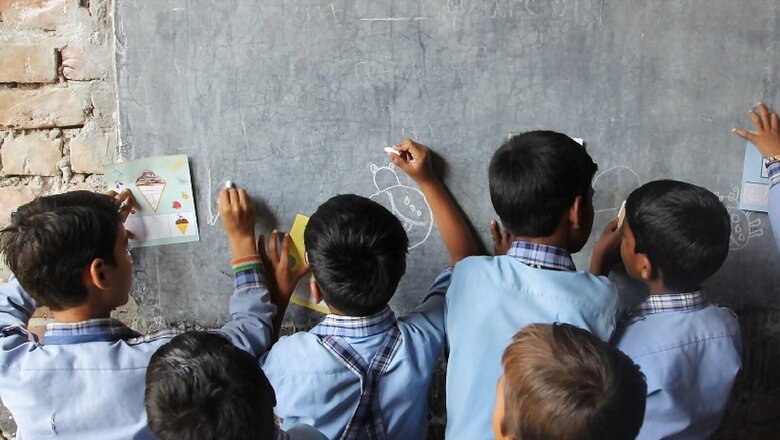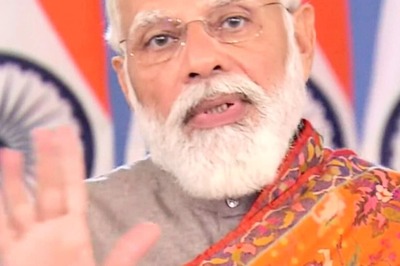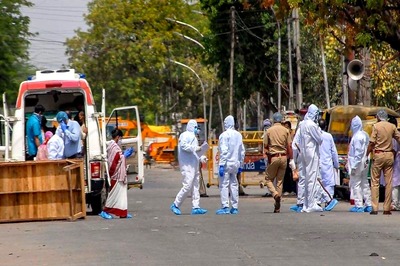
views
As a university teacher and researcher, one has become quite adept at examining educational issues from a sociological perspective, essentially outlining how such issues need to be examined and understood. It is also true that one often shies away from offering solutions either due to fear of becoming preachy or because one knows that since there cannot possibly be uniform solutions for multiple contexts, a nuanced understanding of a problem will inadvertently indicate solutions as well. Practitioners, on the other hand, are keen on finding solutions rather than theorising the problem. This alludes to the classic tension between academics and practitioners, thinkers and doers, respectively. While academics emphasise principles of equity and social justice, practitioners focus on what is practical, feasible or doable. So long as these perspectives are viewed as being mutually antagonistic, we will not be able to make much headway in resolving educational problems.
Over the years, one has come across hundreds of students with multiple perspectives and orientations. A few among them want to make a real difference in people’s lives and consciously choose to work in difficult terrains with communities who themselves are resistant to any form of intrusion. Some of them with brilliant academic qualifications, well-paid jobs in cities give up all that and choose to live on frugal incomes, minimum materialistic aspirations, which is certainly not easy given the kind of society we live in where we are judged by how much we earn and where we work. The most difficult challenge in this long and often lonely journey would perhaps be to implicitly seek the approval of one’s parents and families and convince them that their decision has been taken from a position of strength and not weakness. In this article, I salute the efforts of a few such individuals and two such organisations and the difference they are making to lives and dreams of people around them.
ALSO READ | In COVID Times, Why It is Dangerous to Mistake Information for Education
Swatantra Talim
Ridhi Pathak and husband Rahul Agarwal (qualified CA), graduates from Lady Shri Ram College and Shri Ram College of Commerce, respectively, of Delhi University, admission to which require insane percentages from students in their Class XII examinations, gave up their promising careers to work with communities, largely Muslim, in a nondescript village Ramdwari in Sitapur district of Uttar Pradesh. It is difficult to comprehend and identify that one moment in their lives which triggered their decision to leave city life and well-paying jobs to set up an after-school centre in a village they had visited only once before. What had stayed with them was the fact that girls there got married at the age of 12-13 and boys as small as 10-11 were sent to neighbouring towns to work and the only learning centres there were getting shut. In their attempt to understand education better, they both applied for jobs in Sahyadri, a school based on J. Krishnamurti’s philosophy, and worked there for a year.
Finding relevance in Gandhi’s approach and pedagogy given the rural context they wanted to work in, they packed their bags and moved to Ramdwari in 2013 and started Swatantra Talim — based on Gandhiji’s Nai Talim philosophy, much against the discomfort of friends and family. They began by teaching Muslim girls in a place which did not value their education, instead imposed several restrictions in the name of preserving culture. Working intuitively, they struggled but eventually transformed the way the villagers looked at education, looked at girls and their education, and most importantly, significantly changed girls’ self-image and their expectations from themselves. From a self-defeatist, dismissive attitude towards their culture and education, they have come a long way and neither Rahul and Ridhi nor their families need anyone to tell them that they have added meaning to these children’s lives.
Learning in this context acquires a new meaning and one can see expressions of learning in the act of children creating items such as solar charger, bicycle-enabled fodder cutting machine, travelling to neighbouring towns, resisting imposition of stereotypical expectations on them, demanding their rights, enrolling in greater numbers in schools and connecting school with their local contexts and, most importantly, valuing themselves and their culture and knowledge.
At present, Swatantra Talim operates two after-school learning centres catering to 160 children in rural parts of Lucknow and Sitapur districts of Uttar Pradesh and works with 1,000+ children in six primary and upper primary government schools of Sarojini Nagar block of Lucknow district.
Kshamtalaya
Kshamtalaya is another such organisation which was set up by a group of people with heterogeneous backgrounds who were brought together by a quirk of fate. Vivek Kumar, an engineer by training, Puja Singh, a dance movement therapist, Anjali Gupte, a retired school principal, Soumya Bhaskaracharya, a singer, and Alokesh Sharma, a mass communication graduate, decided to work together in Kotra, one of the most backward tribal tehsils (Udaipur) of not just Rajasthan but India.
Some of the core values which define and frame Kshamtalaya’s work are those that the founders had themselves felt the need for at some point during their own schooling. They were absolutely convinced that every child is capable of learning but for that to happen one must create a democratic, fear-free environment where children feel safe not just physically but emotionally too. This, they believed, gets reflected in the ease with which children ask questions to teachers, exude confidence, express their opinions, disagree without worrying whether they will get ignored or humiliated in the classroom.
Vivek and the other founders also believed that for any meaningful intervention to sustain, the local community must not only believe in the worthiness of such an enterprise – education in this case – but also actively demand it. With this vision combined with their own experiences of schooling and reflections thereof, they started Kshamtalaya by first providing personalised academic support to senior secondary government school students and gradually moving to supporting students in elementary school years. From 2016 until now, Kshamtalaya has worked with more than 100 government schools and more than 10,000 children. Two of its support schools in Kotra have been recognised as top 100 schools in the world by T4, a UK-based organisation.
Besides formal recognition, if one has to see real change, one must begin to notice the small everyday things in which change gets manifested. Their biggest achievement perhaps is reversal in people/teachers’ beliefs, from ‘these children cannot learn’ to ‘every child can learn’. The number of girls resisting child marriage, pursuing their dreams, travelling alone, teachers teaching children without resorting to punitive measures and children happily going to school is increasing. Like Vivek points out, seeing all this which is beyond financial safety, an urge for a meaningful life – a life which is happy and purposeful and which comes from doing things which go beyond self – becomes stronger.
By celebrating such passionate, individual efforts, I do not want to undermine the role of the state in providing good quality education to all children. We should be under no illusion that such efforts can replace state initiative and responsibility. However, this also does not mean that we don’t acknowledge their contribution to people’s lives, no matter how small their number may be, and also to how we should define learning.
ALSO READ | No Tech Utopia: A Blended Learning System Must Recognise Real-world Challenges
The author is Professor and Dean, School of Education, Tata Institute of Social Sciences, Mumbai. The views expressed in this article are those of the author and do not represent the stand of this publication.
Read all the Latest Opinions here




















Comments
0 comment